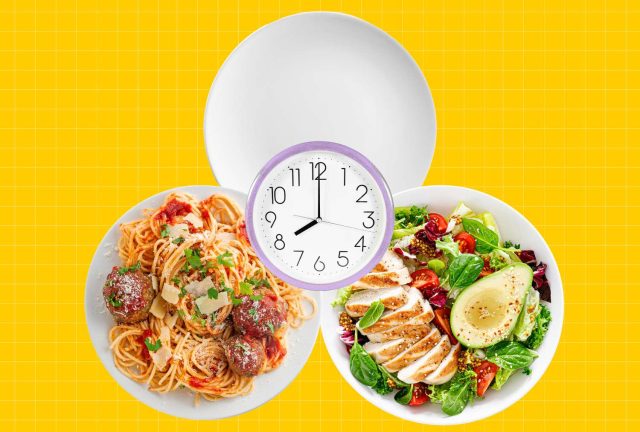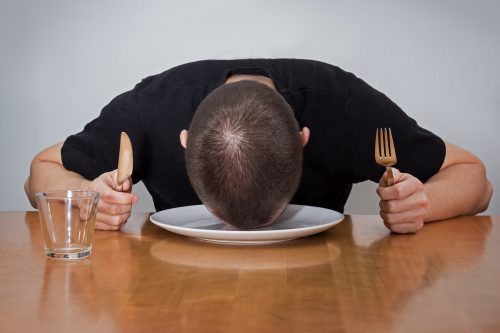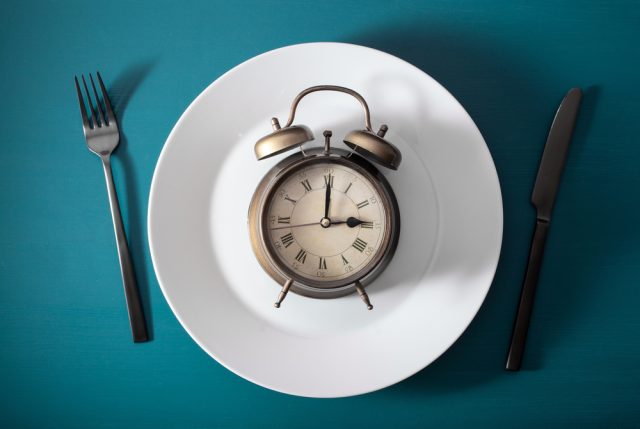Why Skipping Breakfast Might Be Better for Weight Loss
By John V
January 5, 2025 • Fact checked by Dumb Little Man
The Effects of Skipping Breakfast on the Body

Skipping breakfast can affect your body in various ways. Some are good, and some are bad, examples of these are weight loss, improved metabolic health, and encouraging the body to use stored fat for energy. The downside of skipping breakfast is lower energy levels, reduced focus, slowed metabolism, and nutritional deficiency.
Studies have shown that individuals who skip breakfast more than two or three days a week have a significantly higher risk of weight gain and becoming overweight or obese. There are different effects on the body when skipping breakfast and let’s dive further into the topic.
How Skipping Breakfast Affects Energy Levels

Skipping breakfast may cause fatigue and low energy levels because essential nutrients needed by the body are deprived to start the day. Dips in blood sugar, lead to lethargy and sluggishness is a result of skipping breakfast. Necessary fuel for physical activity and the maintenance of steady energy levels throughout the morning are provided when eating breakfast.
Additionally, breakfast eaters tend to be more physically active in the early hours compared to people who skip it. Disrupted hormone balance which leads to mood swings and increased anxiety is also caused by skipping breakfast. Stress hormones are raised when there is a lack of nutrients early in the day, which negatively affects both mental and physical health.
Does Skipping Breakfast Help with Weight Loss?

Skipping breakfast can lead to weight loss through intermittent fasting, a method to improve metabolism and reduce calorie intake. However, it is important to note that skipping breakfast can also have negative health implications, such as weight gain. Various studies indicate a statistically significant association between breakfast skipping and an increased risk of weight gain, overweight, and obesity, emphasizing that avoiding breakfast can lead to unhealthy eating patterns and hormonal imbalances that further promote weight gain. Your body stays fast when you skip breakfast, fat is then used for energy. This leads to fat loss especially when combined with balanced meals later in the day.
You can also regulate key hormones like insulin and ghrelin which play a role in hunger and fat storage by skipping breakfast. This does not work for everyone though. Listening to your body’s needs and maintaining a balanced diet are crucial for long-term success in your weight loss journey.
Benefits of Skipping Breakfast

Intermittent fasting by skipping breakfast is beneficial for weight loss when it is done in a healthy and non-restrictive manner. The total amount of food consumed throughout the day plays a significant role in dietary habits and metabolic health. Fat reserves are used for energy during the fasting period which promotes fat burning and aiding in weight loss. Focus on consuming nutrient-dense food when you break your fast to ensure your body gets the energy it needs to function optimally and avoid extreme calorie restriction.
Prioritize protein when skipping breakfast to help control cravings and reduce hunger pangs later in the day. Foods high in protein are more satiating and keep you full longer to support your weight loss goals. Your body will also improve metabolic flexibility enabling your body to switch between burning carbs and fat more efficiently leading to better overall fat loss.
Drawbacks of Skipping Breakfast

People who skip breakfast for weight loss may feel hungrier later in the day, which leads to impulsive eating. When hunger cues are ignored, you might eat larger or unhealthy meals later in the day which can sabotage your weight loss goals. Maintaining a balanced approach to eating can be done by listening to your body’s signals.
Skipping breakfast, often considered the most important meal of the day, can negatively impact concentration and energy levels. You may slow down your metabolism and affect your overall body function by consistently skipping meals. The body conserves energy when deprived of fuel for long periods, making it harder to burn calories efficiently. Impacting energy levels causes fatigue and decreased productivity and hinders your weight loss goals. You can support a healthy metabolism by eating regular, balanced meals and keeping your body functioning at its best.
Who Should Consider Skipping Breakfast for Weight Loss

People who are trying to lose weight and don’t feel hungry in the morning can benefit from skipping breakfast. Skipping breakfast can extend the fasting period which encourages the body to tap into fat reserves for energy which is perfect for people following an intermittent fasting plan. This can be effective for weight loss as long as balanced, nutrient-dense meals are eaten during the eating window to support overall health and energy needs.
Unlike breakfast eaters, who regularly consume breakfast and experience positive health outcomes such as lower rates of heart disease and better overall lifestyle habits, eating breakfast may not be necessary for people who are not physically active in the morning. Skipping breakfast could help reduce overall calorie intake without compromising performance. Listening to your body and ensuring you’re still consuming enough nutrients and calories throughout the day to maintain optimal health.
How to Skip Breakfast Without Negative Side Effects

Listening to your body and only skipping breakfast if you’re not hungry is a healthy way to skip breakfast. Avoid forcing yourself to eat when you’re not hungry by paying attention to your natural hunger cues. Your meals should be balanced and nutritious to support your energy needs throughout the day when you eat later in the day.
Drinking plenty of water to help prevent dehydration and curb hunger is key when skipping breakfast. Breakfast foods are important for maintaining mental health and emotional well-being, as they provide essential nutrients that support mood stability. You can avoid overeating later in the day by being mindful of your hunger and fullness cues. When you pay attention to your body’s signals and make smarter food choices, you can skip breakfast without experiencing negative side effects.
Paying Attention to Hunger and Fullness Cues

Deciding if skipping breakfast is a good option for you by tuning into your hunger and fullness cues. Your body needs fuel to support your energy needs and daily activities when you feel hungry in the morning. The morning meal plays a crucial role in providing necessary nutrients and sustaining energy levels. Decreased energy and overeating later in the day can be an effect when this signal is ignored.
It’s okay to skip breakfast and eat later when you’re not hungry in the morning. Eating when you truly need to and supporting a balanced and healthy approach to meals can be done by listening to your body.
Should You Skip Breakfast or Eat Breakfast?

It all depends on your individual needs and preferences when deciding to skip breakfast. Skipping breakfast when done in a healthy, nonrestrictive way is perfect for people trying to lose weight. Promoting fat-burning while still allowing balanced, nutritious meals later in the day can be achieved with this approach.
Historically known as the most important meal of the day, breakfast plays a significant role in meeting your energy needs and managing weight, especially if you are physically active in the morning. Listening to your body and making choices that support your overall health and lifestyle goals is important.
Is Skipping Breakfast Right for You?

Weight loss can be aided by skipping breakfast, but that does not mean it is the right choice for everyone. Others may find that eating breakfast provides essential nutrients and fiber which support energy levels and overall health.
The decision to skip or eat breakfast depends on your individual needs and preferences. Activity levels, hunger cues, and nutritional goals are factors to consider to determine what works best for your body.
John V
John is a digital marketing master's student who enjoys writing articles on business, finance, health, and relationships in his free time. His diverse interests and ability to convey complex ideas in a clear, engaging manner make him a valuable contributor to these fields.

